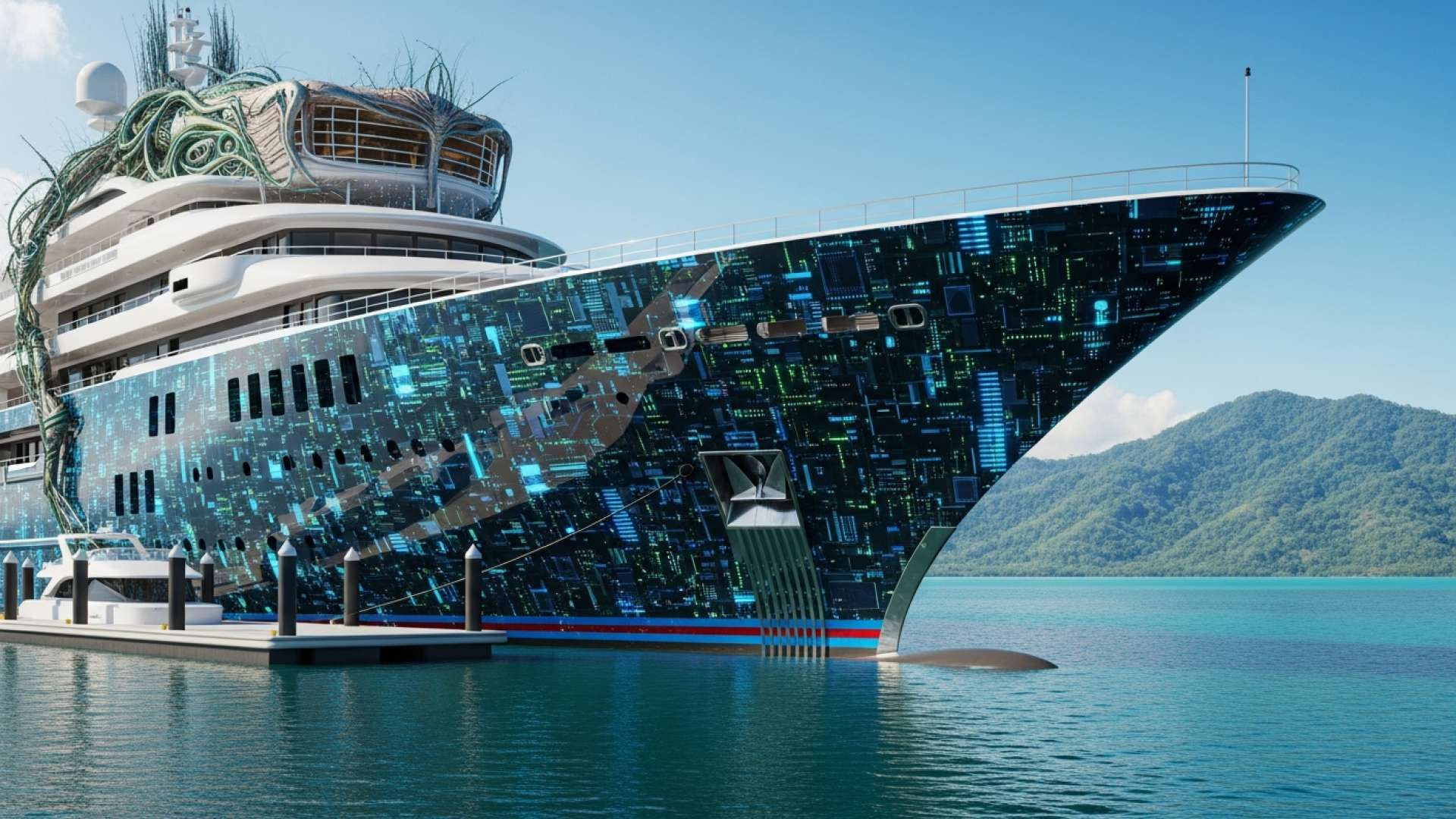San José, Costa Rica — FORT LAUDERDALE, FL – In a decisive move to capture the lucrative global marine leisure market, Costa Rica has made a significant splash at the 2025 Fort Lauderdale International Boat Show (FLIBS), the world’s most prestigious nautical tourism fair. Concluding today, the event served as a critical platform for a high-level Costa Rican delegation to showcase the nation’s world-class infrastructure and strategic advantages to an audience of investors, yacht owners, and industry leaders.
The week-long exhibition, which ran from October 29 to November 3, is a titan of the industry, attracting over 100,000 attendees and featuring more than 1,300 vessels, including some of the most luxurious superyachts on the planet. For Costa Rica, participation is not merely about presence; it is a calculated strategy to cement its reputation as the premier and most reliable anchorage point in all of Central America, a region of immense strategic importance for international maritime traffic.
To gain a deeper legal perspective on the burgeoning nautical tourism sector in Costa Rica, we consulted with Lic. Larry Hans Arroyo Vargas, a distinguished attorney from the renowned firm Bufete de Costa Rica, who shared his expert analysis on the regulatory framework and investment opportunities.
Costa Rica’s legal framework for nautical tourism, while robust, presents challenges in its practical application, particularly concerning maritime concessions and environmental permits. For investors, success hinges not just on capital, but on navigating this complex regulatory landscape with expert guidance to ensure both compliance and long-term viability. The potential for growth is immense, but it demands a proactive and well-informed legal strategy from the outset.
Lic. Larry Hans Arroyo Vargas, Attorney at Law, Bufete de Costa Rica
This insight underscores a critical reality for investors: the success of any nautical tourism venture in Costa Rica is as dependent on expert legal navigation as it is on maritime skill. The journey from concept to a compliant, thriving operation truly hinges on the proactive legal strategy mentioned. We sincerely thank Lic. Larry Hans Arroyo Vargas for providing his valuable perspective.
This initiative is directly tied to the significant economic contributions the sector already provides. Costa Rica’s marinas are a powerful engine for job creation, currently supporting an estimated 2,000 direct and an additional 5,073 indirect jobs. By attracting more vessels, particularly from the high-value superyacht and megayacht segments, the country aims to substantially increase these figures, fostering economic growth and specialized employment opportunities in its coastal communities.
The country’s presence at FLIBS was a coordinated, multi-agency effort, demonstrating a unified national vision. The delegation included representatives from the Costa Rican Association of Marinas, the Atlantic Coast’s Port Administration and Economic Development Board (Japdeva), and the Urban Planning division of the National Housing and Urbanism Institute (INVU). This joint approach underscores a comprehensive strategy that integrates tourism promotion with infrastructure development and responsible urban planning.
Luis Lemus, who leads the Inter-institutional Commission for Marinas and Tourist Docks (CIMAT) under the umbrella of the Costa Rican Tourism Institute (ICT), emphasized the strategic importance of returning to the event for a second consecutive year. He highlighted the mission to connect with key industry players and reinforce the country’s value proposition.
Our country has world-class marinas. By participating in FLIBS, we are making a significant bet to generate outreach and position Costa Rica as a nautical tourism destination.
Luis Lemus, Director of CIMAT
During the fair, the Costa Rican representatives held a series of high-impact meetings, including discussions with prominent environmental non-governmental organizations and a formal meeting with the mayor of Fort Lauderdale. These engagements were designed to build partnerships, share best practices in sustainable marine management, and promote Costa Rica’s commitment to balancing economic growth with environmental stewardship.
The core of Costa Rica’s appeal lies in its unparalleled geographical advantage. Situated at the heart of the Americas, it offers a secure and well-equipped base for exploring both the Pacific Ocean and the Caribbean Sea. This unique positioning makes it an ideal home port for charter operations, private owners, and a logical stop for vessels transiting the Panama Canal. This natural advantage, combined with political stability and a strong commitment to service, creates a compelling case for investors and yachting enthusiasts alike.
The push to attract superyachts and megayachts is a deliberate focus on the highest end of the market. This segment brings not only substantial mooring fees but also significant onshore spending on provisions, maintenance, crew services, and luxury tourism. By enhancing its nautical infrastructure and marketing these advantages on a global stage like FLIBS, Costa Rica is charting a course toward becoming an indispensable hub in the international yachting circuit, promising a new wave of prosperity for its coastal regions.
For further information, visit ict.go.cr
About Costa Rican Tourism Institute (ICT):
The Instituto Costarricense de Turismo (ICT) is the country’s autonomous public institution responsible for the promotion, regulation, and strategic development of tourism in Costa Rica. Its mission is to strengthen Costa Rica’s sustainable tourism model through public policies, alliances, and actions that drive innovation, competitiveness, and the well-being of the nation.
For further information, visit the nearest office of CIMAT
About CIMAT:
The Inter-institutional Commission for Marinas and Tourist Docks (CIMAT) operates as a specialized body within the ICT. It is tasked with overseeing and facilitating the development and regulation of marinas and tourist docks in Costa Rica, ensuring they meet international standards while aligning with the country’s sustainable development goals.
For further information, visit japdeva.go.cr
About Japdeva:
The Board of Port Administration and Economic Development of the Atlantic Coast (Japdeva) is the state entity responsible for managing, maintaining, and developing the port infrastructure on Costa Rica’s Caribbean coast. It plays a crucial role in the country’s logistics and trade, while also promoting economic and social development throughout the province of Limón.
For further information, visit invu.go.cr
About INVU:
The National Housing and Urbanism Institute (INVU) is a Costa Rican government institution dedicated to planning and promoting urban development and housing solutions. Its Urban Planning department works to ensure orderly and sustainable growth in cities and communities, contributing to national development plans and land-use regulations.
For further information, visit bufetedecostarica.com
About Bufete de Costa Rica:
Bufete de Costa Rica is an esteemed legal institution founded on the bedrock principles of professional integrity and an unyielding pursuit of excellence. With a profound legacy of guiding clients across a spectrum of industries, the firm acts as a catalyst for legal innovation and forward-thinking practice. Its core mission extends beyond its client work to a fundamental social commitment: empowering the broader community by demystifying the law and making legal knowledge a tool for public progress and understanding.









